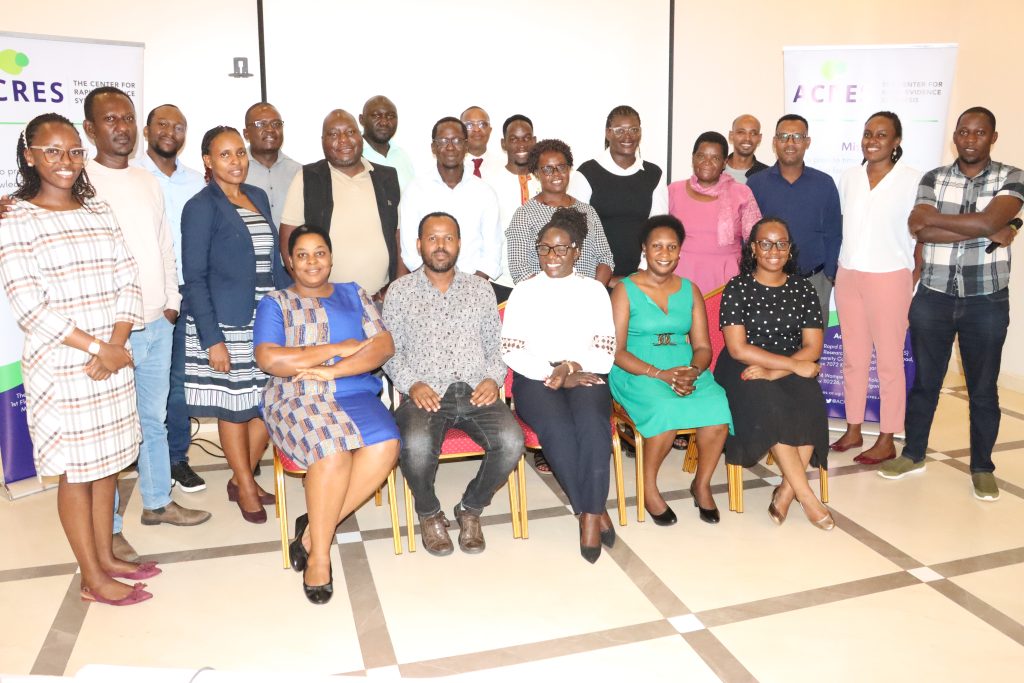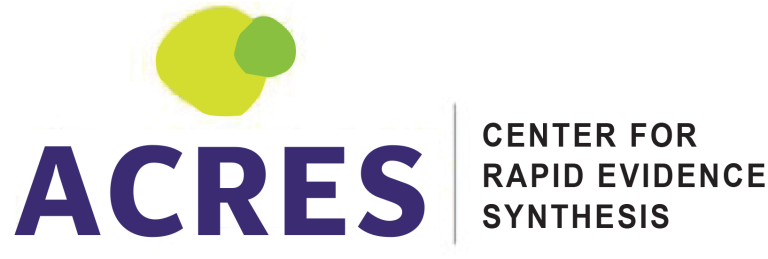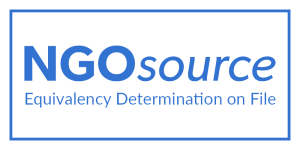
Mid-level learners in the Evidence to Policy (E2P) Training Programme, implemented by the Center for Rapid Evidence Synthesis (ACRES), have successfully concluded a three-day mid-term review in Entebbe, Uganda.
The workshop held August 11 – 13, 2025 brought together 16 learners, including 8 policymakers and 8 knowledge brokers from Kenya, Malawi, Uganda, and Ethiopia, who are currently enrolled in the 28-week training programme funded by the Africa LEEPS project.
Key Highlights from the Workshop
The review focused on progress updates for each team’s Capstone project – with knowledge brokers paired with policymakers. It involved the refining of research questions and methodologies. The teams are tackling issues such as health, climate change, and the intersection of both, ensuring that their work contributes to real life evidence-informed policymaking.
During the closing session, Dr. Ismael Kawooya, Head of Training at ACRES, encouraged participants to remain committed to completing the programme successfully.
“You should be able to see yourself moving to the next level of your career. That may be difficult to see during the process, but I am sure as we go along, those around you will start to notice,” he said.
Dr. Kawooya also emphasized the importance of continuous learning for knowledge brokers:
“As knowledge brokers, you should see yourself as an advisor. Your first role is to understand—clarifying what your policymaker is talking about is very important. Interest yourself in knowledge. The knowledge you need is certainly beyond what you have been taught. This means you have to read more.”
About the E2P Training Programme
The E2P Training Programme aims to strengthen evidence-informed decision-making (EIDM) by equipping policymakers and knowledge brokers with the skills to integrate research into policy.
As a leader in EIDM in the Global South, ACRES is proud to foster a growing community of professionals adept at bridging the gap between evidence and policy.
This mid-level training builds on the success of the 15-week entry-level programme, which concluded in February 2025 and involved participants from Malawi, Uganda, Tanzania, and Ethiopia.


